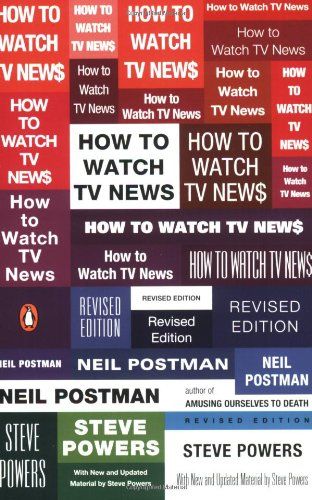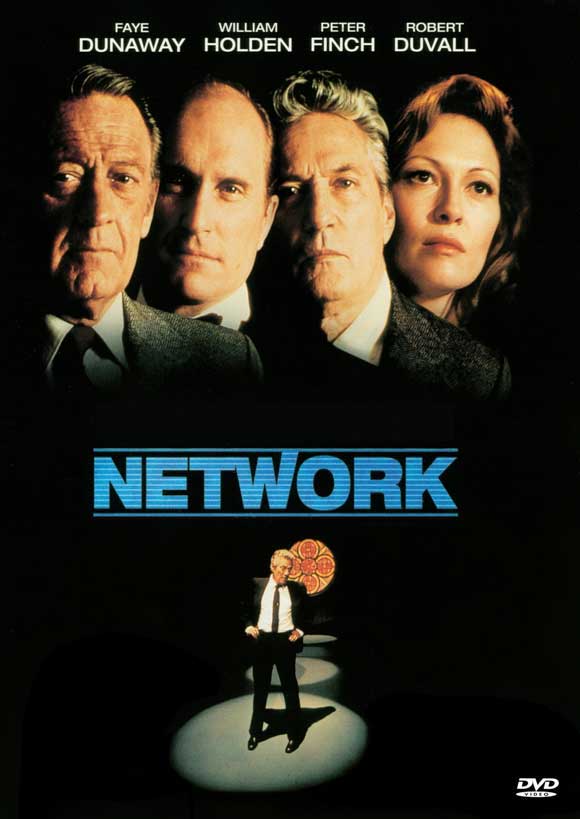
Neil Postman, as a philosopher, is deceptively simple. His writing is so easy that by this point it took me seconds to read a page. McLuhan’s name also appear, so it’s obvious he’s not providing new paradigms of thought. He continues McLuhan’s critical examination of technology, not taking it for granted by asking what it means. If the medium is the message, then this is book expands on news as a medium.
Before I talk about this book, I must make the theory clear. When McLuhan uses it, he means any kind of technology. For him, the newspaper and the text are two different medias. Postman takes a saner, more intiuiative approach to his theory and uses the tradition of medium as a tool for transmitting content. He examines what kind of content works better with medium according to its traits. Although it’s a different modus operandi of analysis, it’s still an extremely useful one. Actually, it’s necessary for us to understand any kind of communication.
Postman and Powers talk a lot about the importance of advertising. No one should be surprised by this. Ads are everywhere. Just go outside. An activity as innocent as waiting for the bus will involve advertising, in the station and on the bus itself. The chapters about media-as-business don’t reveal too much since, in my experience, people already perceive the TV networks as a business anyway.
The interesting and important parts are when the authors discuss what news is. It’s the type of discussion we don’t have enough. When you criticize the news, or TV, for being stupid people will reply with, ‘oh, it’s business, of course they will do what makes money’. Living in a strictly Neoliberal mindset, this makes sense. Adopting a less dogmatic mindset means asking yourself what kind of product you’re consuming. Without asking yourself this, you can’t tell the difference between a snack and a meal.
It’s this crucial distinction that makes all the figures about adverts alarming. News isn’t exactly entertainment. Things that happen in it are supposed to real. News show stand in contrast to other shows in that they’re meant to provide information. That’s why you’re angrier when Trump says ‘grab them by the pussy’ then when the Joker abuses Harley Quinn. Clearly, news are a different product than other shows, like RealiTV or cartoons.
Since news deliver information, the authors always view news by that prism. If these parts seem worrying, it’s only because they force you to ask whether you’re actually learning anything by the news. Their examination of the visual image is fantastic. It’s not an attack on the image itself. Rather, they examine what kind of information an image delivers, and what ideas work better in images.
News aren’t documentaries (A subject they sadly didn’t touch). News consists of incomplete stories framed as complete with pictures. Yet the story is so much more than a picture. A picture isn’t actually worth a thousand words since these words can contradict each other. They also point out how images express more than tell, show something concrete but don’t include context. It’s not that images are bad, but news information demands context, order, and meaning. Images aren’t enough to deliver those.
The print media also contains pictures, but then they analyze its structure. It’s another thing that’s easy to miss. The newspaper is a mosaic of images, where there is less hierarchy and more control for the reader. Although the editor decides which items will be on the paper and how much they will stick out, they can’t control the order of reading. Choosing to watch one story before the other in TV news is quite hard work. Why put all this effort into rewinding and fast-forwarding?
It’s sad that the authors didn’t emphasis the viewers’ ability to be selective on the media they consume. Although they’re not totally deterministic, Powers’ final conclusion, when discussing new technology leans towards gatekeeping. What he misses is that gatekeepers won’t necessarily care or know the well-being of the viewer. A gatekeeper by definition puts less power in the viewer’s hand. The power of selection is what we need to teach.
Some optimistic researchers will say we’re all naturally selective. I don’t think so, and the high amount of TV watching and viral content is more evidence of that. Selectivity means people will have a guideline of their own that makes them choose the content. They will not scroll the popular YouTube videos to see what’s happening, but rather search for specific topics. The internet actually does increase selectivity, mostly because you have to with all this information.
What they miss about information glut is that it demands being selective, unlike the TV. The TV, as a medium, is a regression in terms of intelligence and ability to convey information. Postman keeps proving this here. The authors missed that technology changes and can amplify parts of ourselves. Their pessimism misses the internet’s nature of information glut which forces people to be selective in some way. That said, selectivity demands critical thinking and that demands a lot of effort and our education system don’t really support it.
An interesting chapter focuses on the televising of trials. It’s one of the highlights, since it illustrates more clearly than any chapter how TV works. When a trial is televised, everyone knows that one person is tried. We’re judges by nature, and by putting someone on TV you put the person in front of millions of judges. Beyond that, the nature of summary of TV means our judgment will be quicker and less informed. Many of us will not even know what the final decision was. We’ll know someone’s been tried, assume he’s guilty or not and move on.
I agree with the authors that TV should stay out of court. They spread disinformation, not information. A person witnessing a trial is seeing it as it is, all the information with no edited highlights. On the news, you can’t show the whole trial but have to edit the highlights.
This book is directly related to Amusing Ourselves to Death. That book laid down the nature of TV and Postman’s demand for a boundary between information and entertainment. It is a discussion for a different book, but keep in mind these are some of the assumptions Postman and Powers bring. Information and entertainment must not go together. They don’t view TV as bad in and of itself, at least not in this book but merely as horrible at providing information. Although they expose their bias of technological pessimism a little later, they still lean towards being critical instead of dogmatic. After all, they provide some tools of analyzing language and these tools can be used against them. The point of the book is anyway not to make you agree with Postman so much as provide you with tools to be more critical, more on-guard.
It’s a good book on communication and media studies. It should be read by everyone since everyone is affected by the news. That said, it’s on a small scale. It doesn’t provide a theory but apply it. We need such books since sometimes theories can exist so much time in the abstract they lose any foundation in reality. Anyone expecting a series of revelation might be disappointed that this is not as ambitious as Amusing Ourselves to Death. It does provide a nice extension of the argument and is more accessible to layman, since it’s more of a toolbox than a theory. Postman’s books do sell, but they should sell more. Here is a philosopher who deals directly with life, cares deeply for being human and isn’t hard to understand at all.
3.5 fake news reports out of 5

